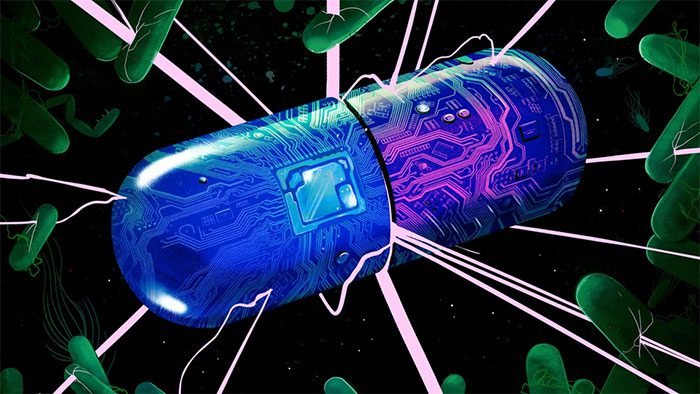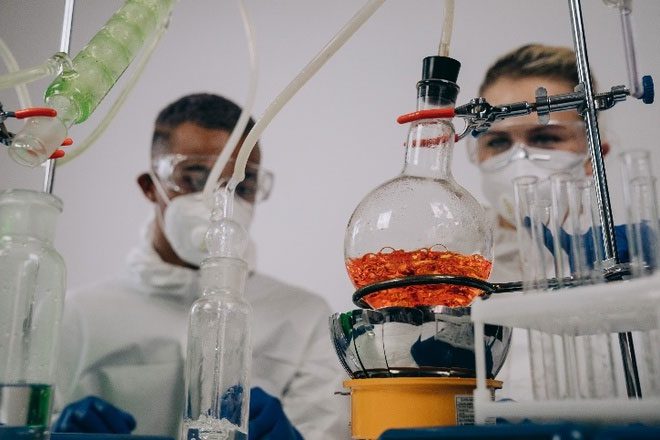An AI tasked with creating proteins with antibacterial properties. Researchers later compiled the results based on part of this study.
According to New Scientist, an AI has autonomously researched and generated antibacterial proteins. This research was then tested in real-life scenarios and showed initial success. This approach could similarly be applied to develop new drugs.

Scientists have applied AI to create antibacterial proteins. (Image: Quanta Magazine).
Proteins are composed of chains of amino acids, and the sequence of these acids determines the shape and function of the protein. According to CEO Ali Madani at Profluent, a California-based biotechnology startup, his colleagues have used AI to design millions of new proteins. They then created a small sample to verify the effectiveness.
Currently, this AI is known as ProGen, which operates similarly to other artificial intelligences. ProGen has researched how to generate new proteins by self-learning about amino acids. Instead of selecting a specific topic, scientists designated a group of necessary proteins for this AI to focus on. In ProGen’s case, they selected a group of proteins with antibacterial activity.
Additionally, researchers designed testing protocols for the AI to prevent it from generating “useless” amino acids. Furthermore, they still had to test a molecular sample proposed by the AI in real cells. Out of the 100 molecules generated by the AI, 66 participated in chemical reactions similar to how natural antibacterial proteins found in egg whites and saliva function.

Many antibacterial proteins created by AI have shown initial success. (Image: Pexels).
This gives scientists hope that these new proteins might also be capable of killing bacteria. Currently, researchers have selected five types of proteins that exhibited the strongest reactions and added them to a sample of Escherichia coli bacteria. Among them, two of the AI-generated proteins successfully killed the bacteria.
According to Dr. James Fraser at the University of California, a member of the research team, scientists were very concerned when they could not determine the suitability of the AI in generating antibacterial proteins.
“It’s like a duck identification experiment that needs to be checked through X-rays,” Dr. James Fraser stated. Additionally, he expressed his surprise at finding many proteins that worked well within a relatively small portion of all the proteins generated by ProGen.
Ultimately, Mr. Madani from Profluent noted that a similar process could be used for drug development. However, they still need to be tested in the laboratory, which is a time-consuming process.


















































